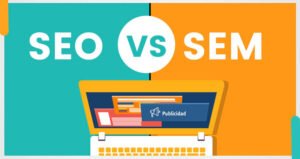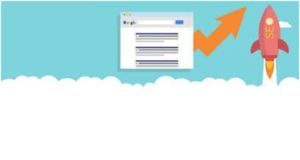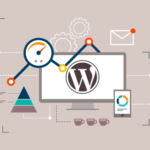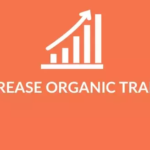The market is huge; every single factor shows a positive and negative impact on your online business. It is imperative to select the best platforms to start an eCommerce website because here, you can meet with your potential audience and sell products and services.
Table of Contents
What is an eCommerce Platform?
An e-commerce platform is a software that allows developers to build an online store. It offers you advanced tools and features to run that manage day-to-day online business tasks. A successful online store starts with choosing the best eCommerce platform. It lets you build an engaging and user-friendly online store without any coding skills and at a bottomless budget.
If you want to jump directly into the best e-commerce platform, then it’s a Magento development service. However, the market is flooded with many eCommerce solutions to cater to the demands of all types of businesses.
Fortunately, the wide range of e-commerce solutions lets you build an e-commerce store from scratch, and manage every kind of marketing task. In this blog, we are going to tell you the best platforms to start an eCommerce website development. So, let’s get started.
Also Read: How Much Does it Cost to Develop an eCommerce Website?
List of the best platforms to start an eCommerce website
Big Commerce
Big-commerce is a flexible and scalable eCommerce platform. It has been providing comprehensive e-commerce solutions to users for several years. This platform offers you everything that helps you in selling products online. People who are thinking of taking advantage of extra online features can opt for Big commerce.
Highlights
- Ease of design.
- Strong SEO performance. NO 1 clicking selling.
- Excels with multi-channel selling.
Pros
- This e-commerce platform offers advice and guidance on selling products online.
- It’s a full-featured CMS platform that enables users to run the whole site rather than a store. 40+ pre-integrated payment gateways.
Cons
- Less collection of the themes.
- Premium themes are a bit expensive.
- No native POS feature.
Magento
Magento is perhaps a well-known eCommerce platform that is easy to use and comes with extensive website building features. It’s a world-leading digital commerce platform that allows users to build an engaging and unique and user-friendly. This is the only e-commerce platform that comes with two versions, Magento open-source and Magento commerce. In which open source is free to download, manage, and self-host. Compared to other eCommerce platforms, Magento is the only one that gives you more functionality, advanced selling features, round-the-clock support, and, most importantly SaaS eCommerce solution.
Highlights
- Magento has 1300 open and ongoing tickets.
- It allows you to share your products on multiple sites.
- Have an existing integration with Paypal and other payment gateways.
- API enables developers to build customized applications and storefronts.
Pros
- Its standard SEO features like no-follow links, redirect links and canonical tags help marketers in increasing ranking.
- Has numerous website themes. Strong SEO
- Robust features.
- Scalability and sustainability are very high.
Cons
- It requires a lot of updating.
Shopify
After Magento web development, the eCommerce platform that can offer you full-featured eCommerce solutions is Shopify. It is very easy to set up and access. All you need is just to sign up and you can start building an eCommerce site. The intuitive feature of this eCommerce platform allows you to online shop and sell products instantly.
Highlights
- Very easy to set up.
- Fastest loaded time.
- Works with +70 payment gateways.
Pros
- Powerful analytics.
- Round the clock support service is open for the customers.
- Large app marketplace.
Cons
- Weak SEO performance.
- The checkout is not customizable.
- Developers need to pay a fee for the plugins and themes.
WIX
WIX is also known as drag down website builder. And it is popular because of the easy setup process and simplicity. If you are a beginner and want to build an eCommerce platform then WIX is the best for you. This eCommerce platform has more than 500+ themes, but not as engaging as Magento web development. However, WIX doesn’t take any charges to build an online store.
Highlights
- Drag and drop site builder. Super easy to use.
- Help and support.
- Highly scalable and flexible.
Pros
- This eCommerce platform is completely free to use.
- Simple to use and easy to set up.
Cons
- Weak SEO performance.
- To activate the functionality, you always need to upgrade the plan.
- It is new, requires a lot of improvements.
Weebly
Weebly is a reasonable and good choice for small businesses. It’s another drag-drop website builder that is very easy to use and set up. Though they are reasonable and super easy to access, they come with less advanced online selling features that you will get in Magento. If you are looking for eCommerce website development for practicing then Weebly is the best. But for professional uses, you should opt for the Magento type of eCommerce development platform.
Highlights
- Cool customizable themes. Basic web building tools.
- User-friendly and intuitive.
- It comes with a built-in code feature that allows you to customize the site.
Pros
- You can create a great looking site with this platform.
- Come with the latest and updated themes.
Cons
- Weak SEO performance.
- Easily performance slows down.
- Lacking online selling marketing features.
Final Say
We hope this comprehensive guide on the best platforms to start the eCommerce site helps you a lot. In this list, if you are looking for the eCommerce platform that comes with
multi-channel selling, 500+ design themes, 1-click selling apps, and strong SEO features, then choose Magento. Needless to say, Magento is a versatile and great platform when it comes to online selling websites.







